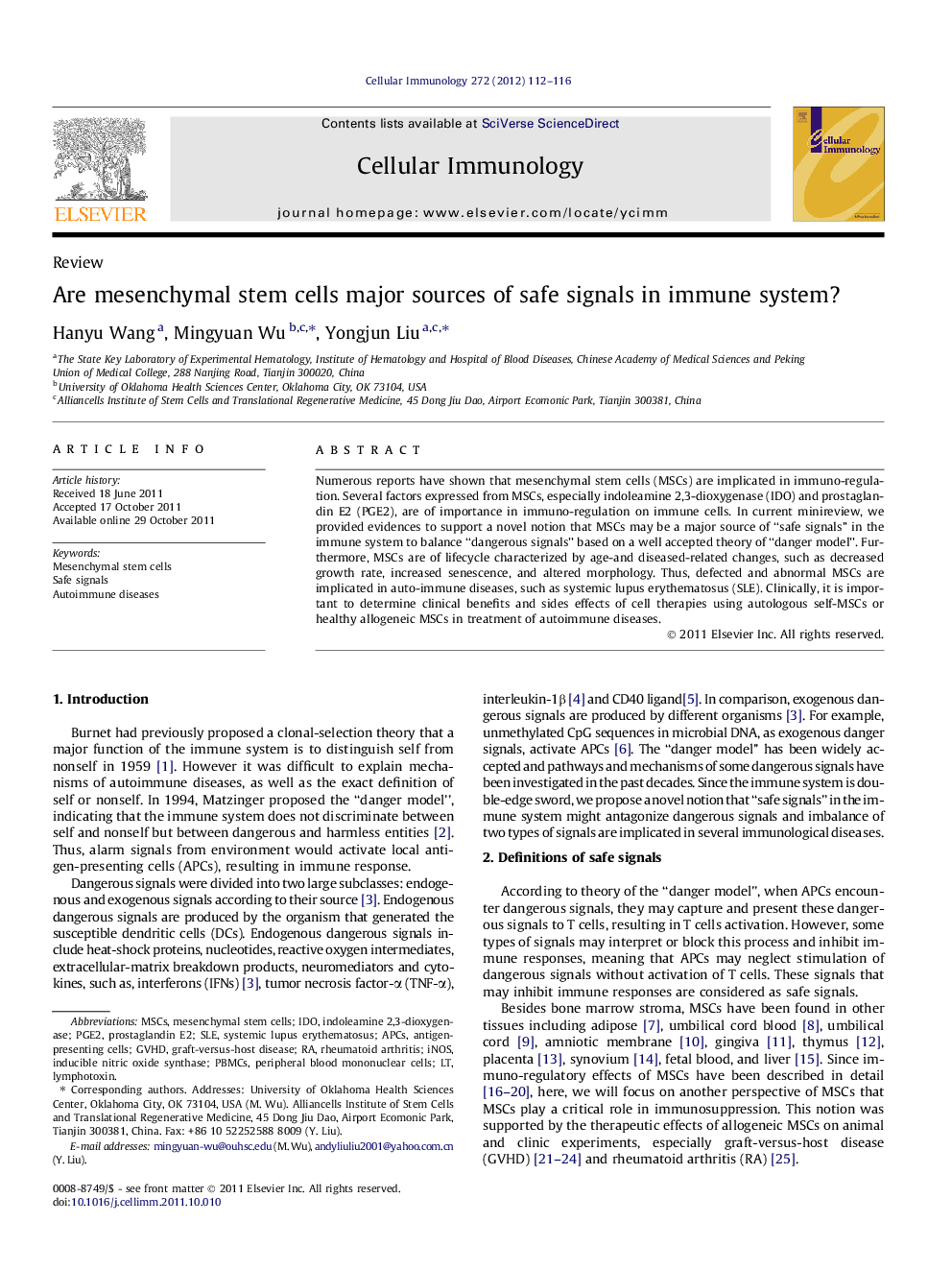| Article ID | Journal | Published Year | Pages | File Type |
|---|---|---|---|---|
| 2167378 | Cellular Immunology | 2012 | 5 Pages |
Numerous reports have shown that mesenchymal stem cells (MSCs) are implicated in immuno-regulation. Several factors expressed from MSCs, especially indoleamine 2,3-dioxygenase (IDO) and prostaglandin E2 (PGE2), are of importance in immuno-regulation on immune cells. In current minireview, we provided evidences to support a novel notion that MSCs may be a major source of “safe signals” in the immune system to balance “dangerous signals” based on a well accepted theory of “danger model”. Furthermore, MSCs are of lifecycle characterized by age-and diseased-related changes, such as decreased growth rate, increased senescence, and altered morphology. Thus, defected and abnormal MSCs are implicated in auto-immune diseases, such as systemic lupus erythematosus (SLE). Clinically, it is important to determine clinical benefits and sides effects of cell therapies using autologous self-MSCs or healthy allogeneic MSCs in treatment of autoimmune diseases.
► Several factors expressed from MSCs are of immunoregulatory effect on immune cells. ► The ability of MSCs to downregulate T-cell proliferation is deficient in some patients. ► MSCs, as the source of safe signals, not only induce but also maintain tolerance. ► Abnormal self-MSCs should take responsibility for autoimmune diseases.
